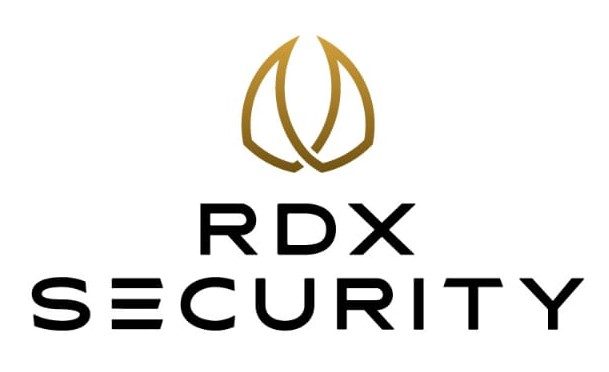What is section 24, known as the ‘Landlord tax’?
- February 2022
- 5 minutes
You’ve probably been wondering why everyone is talking about mortgage interest reduction lately. Isn’t this just another tax adjustment that won’t have much of an impact on me? For some (those who own property outright without a mortgage), this move will have no impact on how they manage their buy-to-let properties. Other landlords, on the other hand, are likely to face a significant increase in their tax bill and a significant decrease in their income. Those in the higher rate tax group of 40% will be affected the hardest.
Section 24 was introduced in April 2017 and will phase in over the next 4 years. What it means is that you will no longer be able to claim mortgage interest, or any other property finance, as tax deductible. Instead, rental profit will be taxed with a maximum deduction for finance costs of 20%, the basic tax rate, by 2021.
The full name of the act is Section 24 of the Finance (no. 2) Act 2015, also known as the Tenant Tax because of the legal case launched to challenge the act.
 What is section24? Tax Relief changes explained
What is section24? Tax Relief changes explained
Section 24 is a tax law modification in the United Kingdom that applies to revenue from residential rental properties. Landlords will no longer be able to claim as much tax relief as they could previously.
Prior to the introduction of Section 24, you could deduct mortgage interest from your income tax bill. Other expenditures associated with rental properties, such as mortgage administration fees or loans to pay for furniture, could also be deducted.
You must now pay tax on all rental income you get. You can then claim back up to 20% of your mortgage interest costs (the basic rate of income tax).
In effect, it means landlords now pay more tax upfront. Plus, if you also receive a salary from another job, this could bump you into the next tax band which can increase the amount of tax you pay overall.
 Will Section 24 affect me?
Will Section 24 affect me?
If you have any kind of loan or mortgage interest on your buy to-let property, then yes. If it is a large proportion of your costs, you will now start to pay tax on those costs – as well as your
profit. Landlords shouldn’t be burying their heads in the sand and assuming these changes will not affect them. We strongly advise assessing your buy-to-let finances or contact a tax specialist for advice.
 Why was Section 24 introduced?
Why was Section 24 introduced?
Section 24 tax changes were introduced with several aims in mind:
- To reduce the attractiveness of the private rental market to landlords.
- To prevent high-income earners from claiming huge sums of tax relief.
- To increase the level of housing stock and give first-time buyers a greater opportunity to get a foothold on the property ladder.
 How does Section 24 work?
How does Section 24 work?
Section 24 laws require you to pay income tax on all property earnings. You can then seek reimbursement, but only up to a maximum of 20%.
Example:
-your rental income is £15,000
-your mortgage interest is £5,000
-Under Section 24 you’ll need to pay tax on the full rental income. This is £3,000 for basic rate taxpayers (20%) and £6,000 for higher rate taxpayers (40%).
-You can then claim back 20% of your mortgage interest payments which is £1,000(20% of £5,000)
Therefore, basic taxpayers will pay £2,000 tax on their rental income and higher rate taxpayers will pay £5,000.
If you rent out a property, you must pay taxes on any profits you make. While it may appear to be a straightforward calculation, tax on rental income can be complicated and should be considered.
 What does Section 24 represent in terms of landlord income?
What does Section 24 represent in terms of landlord income?
The effect of Section 24 on your income will depend on which tax band you fall into.
For lower income earners, the effect will be minimal. For landlords with large portfolios, the impact could be significant.
Example before Section 24 was introduced:
You can deduct your mortgage interest from your rental income so only pay tax on £10,000.
Basic rate taxpayers pay £2,000. Higher rate taxpayers pay £4,000.
As you can see, basic rate taxpayers perceive no difference because you can claim back the 20% you would have previously deducted.
Higher-rate taxpayers, on the other hand, will have to pay an additional £1,000 in tax. If you have a larger portfolio and numerous buy-to-let mortgages to pay, the tax increase could be significant.
You should also keep in mind that additional expenditures can no longer be deducted, so you’ll have to pay tax on any mortgage administration fees.
 How can landlords off-set and manage Section 24?
How can landlords off-set and manage Section 24?
Changes to Section 24 tax relief apply to all landlords, however there are measures to offset the effects, such as:
- Review operating costs-Reducing property operating costs is the quickest and easiest approach to recoup money lost due to increasing taxes. For example, instead of hiring a management company, you may manage the property yourself.
- Re-mortgage-reviewing your overall mortgage costs and finding a more competitive loan can help minimise the impact of Section 24.
- Move towards a commercial portfolio-Section 24 only applies to residential property, thus converting your investments to commercial property will allow you to avoid the ruling.
- Divide profits or transfer ownership-If you have a lower-income partner or family member, dividing earnings or transferring property to them can help to balance out your tax liability.
- Become a limited company-Section 24 does not apply to limited companies so incorporating your portfolio means you can avoid the tax change. Before you do this, remember that limited companies are subject to capital gains tax and corporation tax, so you’ll need to weigh up the sums involved.
- Set up a Beneficial Interest Company Trust-This allows you to move your portfolio into a business structure to avoid tax changes while still preserving personal ownership of the property. There is also no need to re-mortgage your houses in this case. These trusts have other ramifications, such as corporate tax, and there may be concerns with future re-mortgaging. If this is an option that interests you, it is strongly advised that you get professional guidance first.
- Increase rent-this could make up for the higher tax burden but it’s a fine balancing act because you’ll need to avoid slipping into the next tax band
- Reduce your portfolio-streamlining your investments and selling poor performing properties can reduce what you’re taxed on
- Sell your properties– for many landlords, sadly selling up is the only viable solution, particularly if properties are in stagnant markets.
If you decide to streamline or sell your properties altogether, a Section 21 notice can make it clear that you won’t be renewing the tenancy agreement after the contract ends.
Changes in legislation mean it’s more important than ever to protect the investments you have. It’s also crucial to ensure the services you receive give you value for money.















